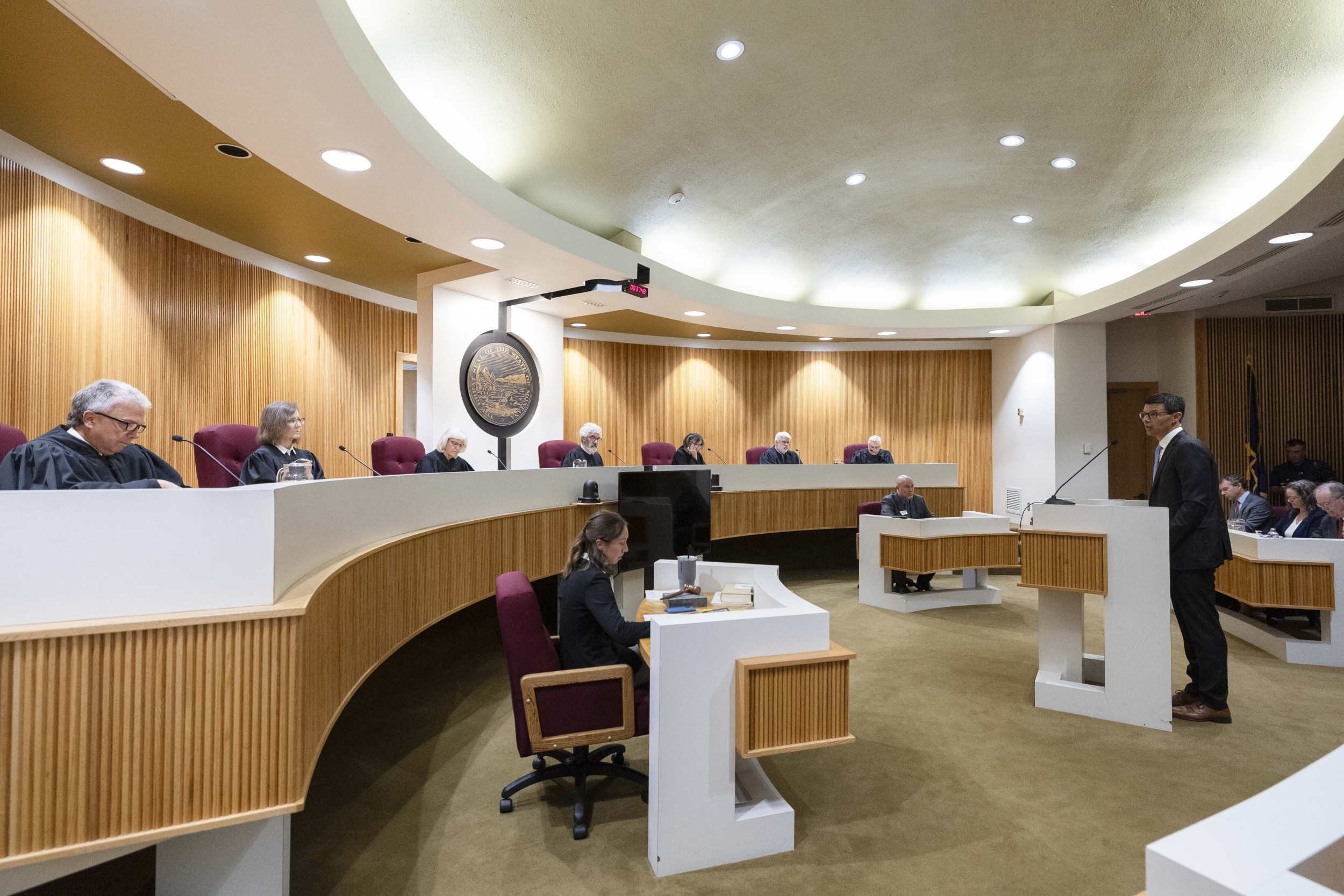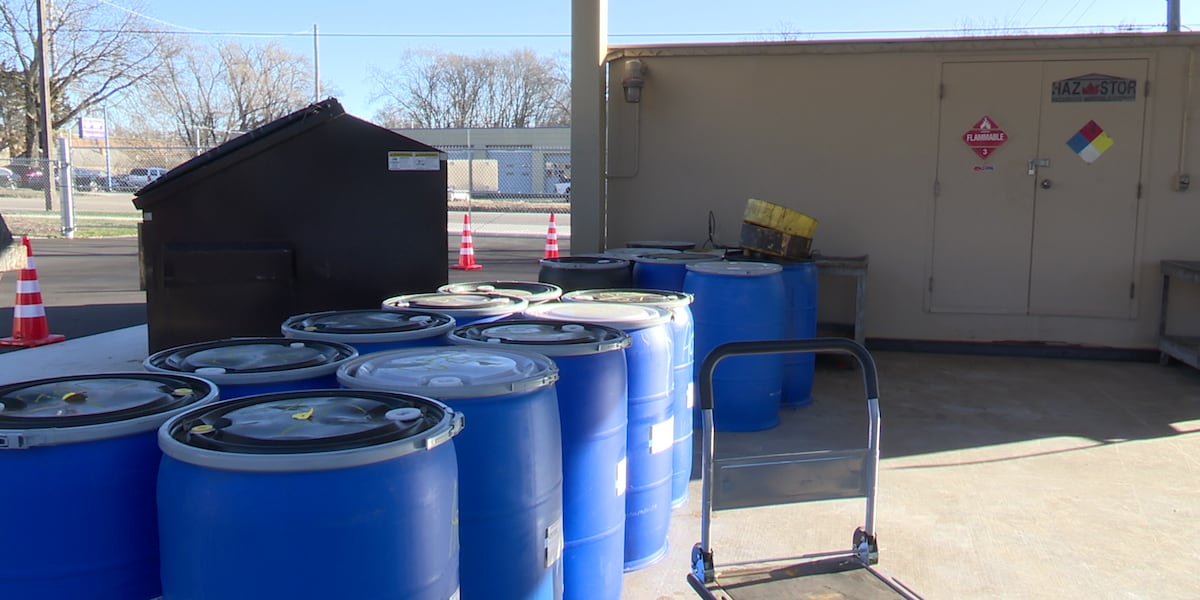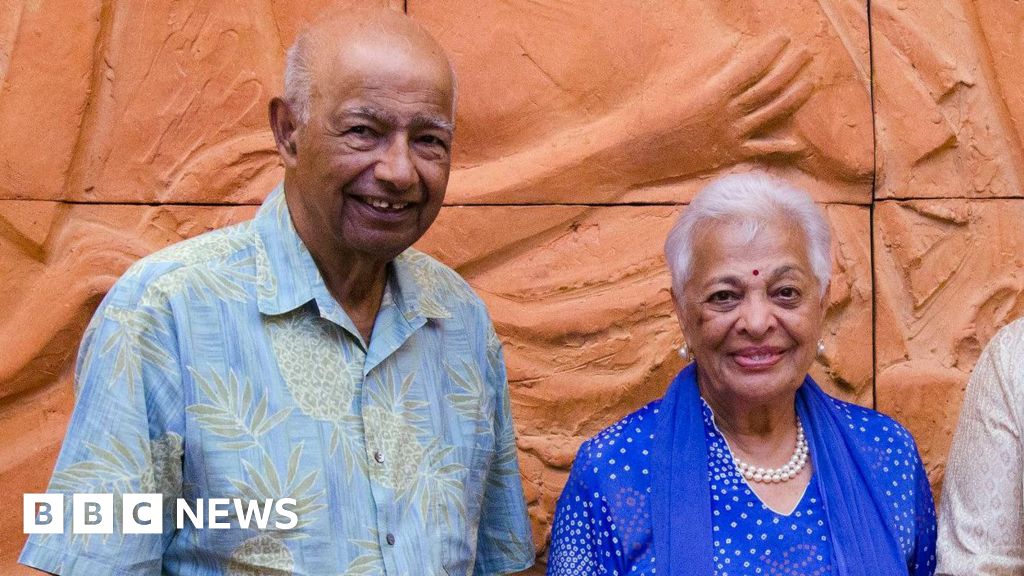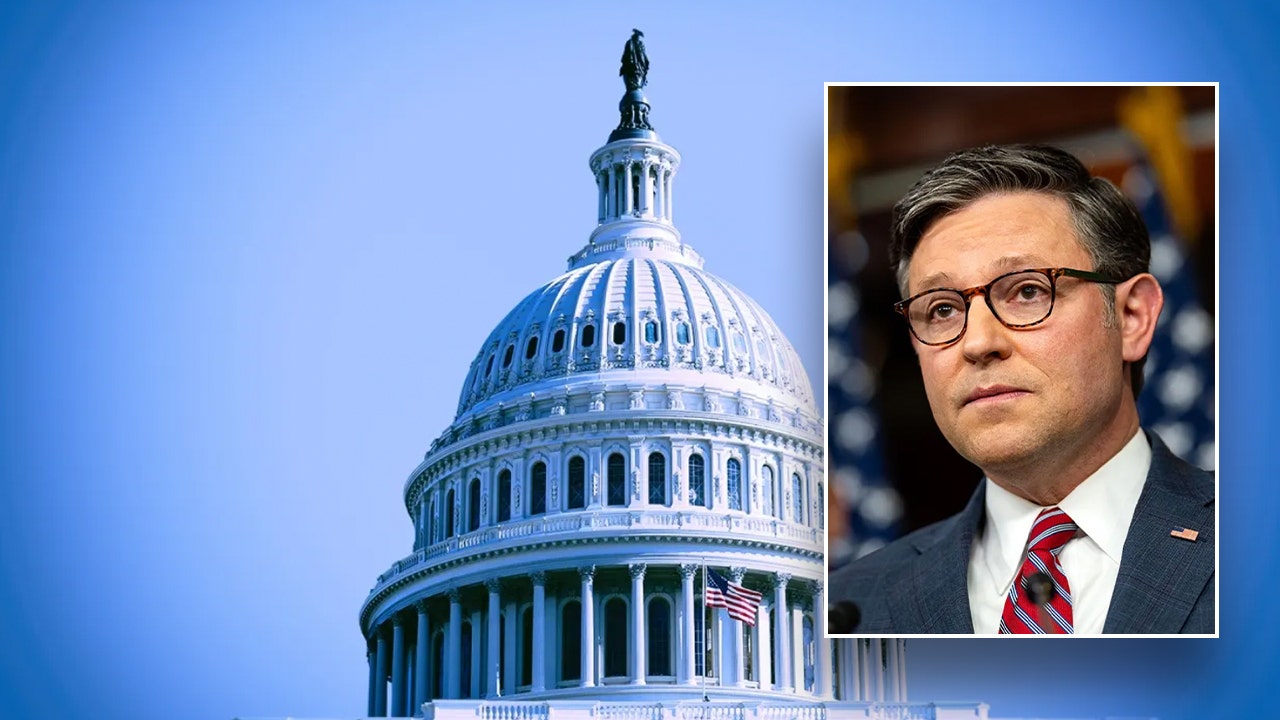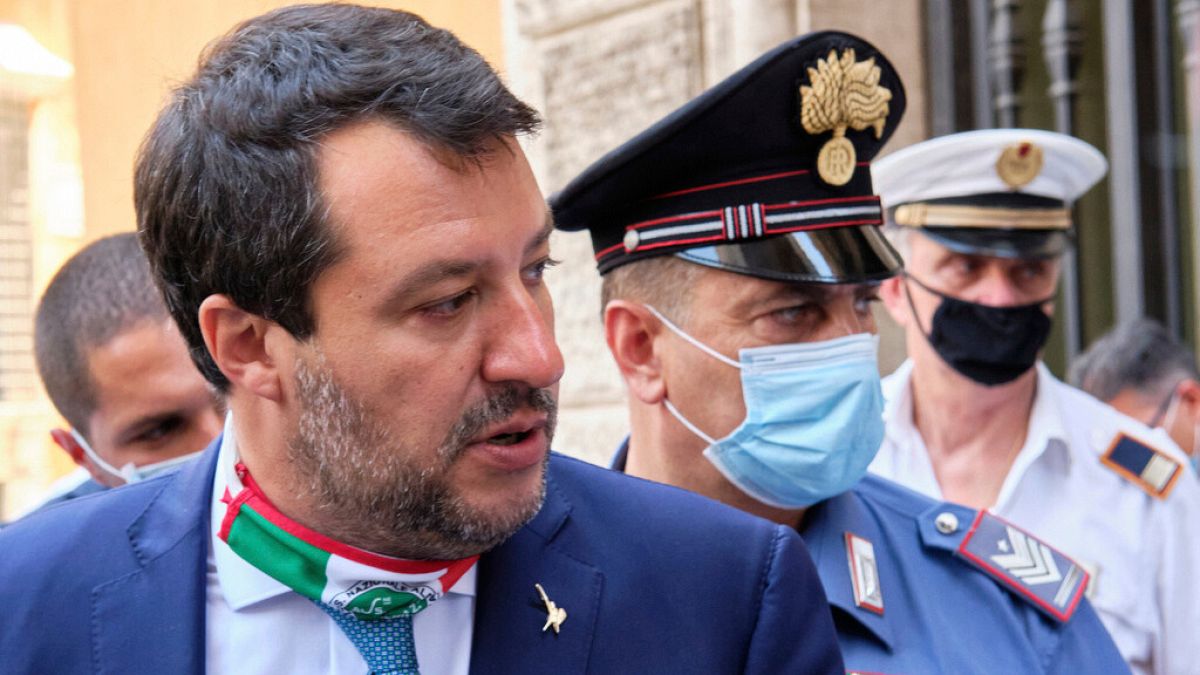Massachusetts
As legislators renew push for plastic bag ban, much of Massachusetts already covered – The Boston Globe

“There is an argument that maybe the marketplace is working on its own,” said Jon Hurst, president of the Retailers Association of Massachusetts. “One could argue in the cities and towns where there was the most pressure to do it, they’ve already done it.”
A handful of retailers in Massachusetts, including national grocer Whole Foods, already offer a discount for customers who bring their own reusable bag.
In April, supermarket chain Stop & Shop started charging a 10-cent fee for paper bags, and the company has pledged to eliminate plastic bags from its checkout counters across the Northeast by July. When he first heard about the change, Hurst said, he remembered thinking it “kind of kills the bag ban and bag tax bill.”
Massachusetts and New Hampshire are the only two states in New England without a statewide plastic bag ban, even as lawmakers have been pushing for one in the Bay State since at least 2009.
This year, some lawmakers and environmental advocates aim to tie the patchwork of more than 150 individual regulations into a unified, statewide rule that would ban retailers from providing any single-use plastic bags, with a handful of exceptions, and would mandate they charge at least 10 cents for paper and reusable bags.
Alex Vai, campaigns coordinator for the Massachusetts Surfrider Foundation, said he feels more momentum behind the bans today than anytime since he first started volunteering with the organization in 2016, the same year a ban nearly made it into the state budget.
“It’s pretty obvious that there’s a lot of local energy and desire for this,” Vai said. “Over the last 10-plus years while this has been rolling along, the local laws have only been getting stronger and stronger, and setting a higher and higher floor for what the state should be able to achieve.”
Nearly half of the state’s 351 cities and towns have bag bans. A Globe analysis found the population in those communities adds up to about 69 percent of all residents statewide.
It’s a sea change from 2016, when the Massachusetts Senate passed a budget that included a provision similar to this session’s bill. At that time, around 30 cities and towns had enacted their own regulations, the Globe reported.
Today, that figure is closer to 160, including Boston, Worcester, and Springfield — the state’s three most populous cities — according to data collected by the Massachusetts Sierra Club.
“In a sense, we’re already there. We’re just trying to get the last third,” said Clint Richmond, a Massachusetts Sierra Club executive board member.
Specific regulations vary from city to city and town to town, leaving a patchwork for retailers to navigate, especially those with locations across municipal borders, according to Brian Houghton of the Massachusetts Food Association, which represents grocers across the Commonwealth.
“When you get a big [retailer] that’s got 100-plus sites across the state, it gets pretty tedious,” Houghton said. “A fee here, a ban there, a certain amount of plastic . . . some allow compostable, which can’t be mixed into other plastic bags for recycling. It’s lot of issues going on, so it gets difficult to deal with these things on a state level.”
He said that piecemeal approach was probably one driver of Stop & Shop’s and other retailers’ moves away from plastic bags and toward a single, company-wide policy.
The proposed restrictions in the Legislature would not apply to bags used to carry prescription medication, some perishable and frozen food, or small items that could otherwise be lost, as well as bags “protecting articles of clothing on a hanger” given by retailers. The law would also carve out exceptions for nonprofits distributing groceries and clothing at a reduced cost, and for customers paying with an electronic benefits transfer card, more commonly known as EBT.
State Representative Mindy Domb, who is a key sponsor of the House bill, said she sees the disparities play out across her district. A CVS Pharmacy in Granby stocks plastic bags, she said, while another location in Amherst — less than 10 miles away — only offers paper. Meanwhile, some of her constituents are, by now, so used to local bans that they assume a state mandate must already be in place, she said.
Domb said creating a unified set of standards would ease confusion among merchants and customers, and it would help reduce feelings of economic competition between cities and towns with different bag standards.
In its current form, the bill would not prevent local municipalities from enforcing their own, stricter bans or heightened fees, though, so some of that competition may linger.
Senator James Eldridge, the bill’s original sponsor in the Senate, said he is confident the bill would clear the Senate, but its fate in the House is murkier, although he noted that an increasing number of legislators in the House represent communities with bans already in place.
“The Senate is very comfortable to take action,” Eldridge said. “I do feel like there’s growing support amongst the House.”
Daniel Kool can be reached at daniel.kool@globe.com. Follow him on Twitter @dekool01.

Massachusetts
Stunned Massachusetts educators, ADL call for MassCUE apology after ‘hateful’ anti-Israel and Holocaust rhetoric at conference

Local educators and the ADL are pushing for an apology from MassCUE after the group’s recent “jarring” conference when speakers reportedly spewed “hateful” anti-Israel and Holocaust rhetoric.
MassCUE’s fall education tech conference — held in partnership with the Massachusetts Association of School Superintendents at Gillette Stadium — apparently went off the rails during a panel on equity in education. That’s when the discussion reportedly delved into the current Middle East conflict in Israel and Gaza.
“Speakers leaned very heavily into the Israeli-Palestinian conflict in a very one-sided, dangerous rhetoric,” Uxbridge High School Principal Michael Rubin told the Herald.
That included references to “Israeli genocide” and “Israeli apartheid.”
A panelist also suggested that the teaching of the Holocaust has been one-sided, and “two perspectives needed to be taught,” recalled Rubin, whose grandparents survived the Holocaust, during which the Nazis killed 6 million Jews.
“It was jarring, unexpected, and unprofessional,” added Rubin, who’s also the president of his synagogue.
Following complaints from several shocked conference attendees, the Anti-Defamation League’s New England chapter recently wrote a letter to MassCUE, as the ADL pushes for a public apology.
“It is difficult to understand why an organization dedicated to education and technology would allow a panel discussion ostensibly focused on school equity to instead veer into a complex and controversial foreign conflict,” ADL New England’s deputy director Sara Colb wrote to MassCUE’s leaders.
“It is all the more concerning that once the conversation veered in that direction it was not stopped or redirected to the advertised topic,” Colb added. “Allowing a presentation purporting to be about equity and inclusion in the classroom to include a one-sided narrative of a foreign conflict, replete with hateful, biased rhetoric, does a disservice to attendees by leaving them with a biased and misinformed account of the conflict.”
MassCUE (Massachusetts Computer Using Educators) is the Bay State affiliate of the International Society for Technology in Education.
More than two months after the fall conference, the organization has not addressed the Israeli-Palestinian discussion.
“At MassCUE we take feedback very seriously and work hard to ensure we take any and all necessary steps to address concerns that are brought to our attention,” said MassCUE Board President Casey Daigle. “This process takes time. Please know we are working through our procedures internally.”
The silence from MassCUE’s leaders has been “really concerning,” Rubin emphasized.
“How comments like these about the Holocaust don’t warrant an immediate response is really, really, really confusing to me,” added Rubin, who was given the 2024 MassCUE Administrator Award two days before this panel.
“If a student was targeted by a racial slur in our buildings, we would be involving local authorities, contacting families, sending a letter to the community, but MassCUE is working through their internal procedures. It doesn’t add up,” he said.
The executive director of the Massachusetts Association of School Superintendents said M.A.S.S. was “troubled to hear that any of the speakers at the conference may have made statements that are inconsistent with the anti-racist values of our organization.”
“We are working with MassCUE to learn more about the content in question,” added Executive Director Mary Bourque.
Other than ADL’s push for a public apology from MassCUE, the ADL is calling for the organization to:
- Review its policies and vetting protocols for presentations at programs and make all necessary improvements to ensure that presenters stay on topic, and that “participants will not be subjected to this sort of inflammatory propaganda again.”
- Listen to the concerns of impacted members and participants, and elicit their thoughts on how to “counter the harm this presentation caused.”
- Issue a public statement acknowledging the problems with this program and reinforcing MassCUE’s values of inclusivity for everyone.
“At a time when incidents of antisemitic hate, including in our K-12 schools, are at record highs, it is deeply wrong and dangerous to provide a platform for such hateful rhetoric or to allow a platform to be hijacked for such purposes,” the ADL deputy director wrote. “It is surprising to have to make this point to educators who purport to be concerned with equitable and inclusive classrooms for all students.”
Massachusetts
Updated snowfall forecast: Latest timeline, expected totals map for snow in Massachusetts

Brace yourself! It’s back to winter in Massachusetts with snow in Friday’s forecast and a deep freeze this weekend.
Friday will be mostly cloudy and cool, but temperatures will drop through the afternoon and evening, increasing the chance for snowfall.
Bitter cold weather will follow the snow with arctic air gripping the region on Saturday, Sunday, and Monday.
Latest snowfall timeline
A few ocean-effect sprinkles and flurries are possible during the day, although impacts will be low with no more than a patchy coating, Boston 25 Meteorologist Shiri Spear said in her latest forecast.
Steadier rain and snow will fill in around 4 p.m. and impact the evening commute.
“As things cool down, the chance for snow is going to grow and grow during the late afternoon and evening hours,” Spear said. “Some of the worse travel conditions are probably going to be during the evening.”
The snowfall should wrap up by midnight.
An isolated snow shower or flurries are still possible on Saturday, but most areas will be dry with more clouds than sunshine.
Expected snow totals
A widespread coating to an inch of snow is likely for much of Massachusetts.
The “jackpot” areas, including northeastern Massachusetts, the Merrimack Valley, MetroWest, and interior southeastern Massachusetts could see 1-2 inches.
“Some spots could locally go up to 3 inches,” Spear said.
Cape Cod and the Islands might be too mild for sticking, but flakes will be flying.
Arctic air arrives
Frigid temperatures with highs in the upper 20s and low 30s are on tap for Saturday.
Sunday will bring freezing sunshine with temperatures in the teens and 20s.
For the latest on the forecast, visit the Boston 25 Weather page.
Download the FREE Boston 25 News app for breaking news alerts.
Follow Boston 25 News on Facebook and Twitter. | Watch Boston 25 News NOW
Massachusetts
2 entangled right whales spotted off coast of Massachusetts

As less than 350 North Atlantic Right Whales remain, The National Oceanic and Atmospheric Administration fisheries are working on solutions to save the endangered species while keeping the fishing industry profitable. FOX Weather’s Katie Byrne with more on the efforts.
NANTUCKET, Mass. – Two endangered North Atlantic right whales have been spotted off Massachusetts with entanglements that could potentially be life-threatening to the massive mammals.
According to NOAA Fisheries, an aerial survey team recently spotted a pair of whales approximately 50 miles southeast of Nantucket on Dec. 9.
The smaller of the two marine animals was first sighted in 2021 and was seen free of gear as recently as April.
But now, the survey team said a thick rope was located over the whale’s head and back, which could cause its eventual death.
The larger whale, identified as an adult female, was last seen without gear as recently as July and, due to its size, is unlikely to be as significantly impacted as the juvenile.
“This whale has two lines exiting the left side of her mouth, with both lines extending a half to two thirds of the way down the body,” NOAA stated. “After reviewing the entanglement, NOAA Fisheries biologists have made a preliminary determination that it meets the Unusual Mortality Event criteria as a ‘morbidity’ (sublethal injury) case.”

North Atlantic right whale #5110 with a line wrapped around its body on December 9, 2024
(NOAA)
FIRST RIGHT WHALE CALF OF SEASON SPOTTED OFF SOUTHEAST COAST
Due to conditions and the distance to shore, NOAA entanglement response teams did not mount a response but stand at the ready should the occasion arise.
The agency estimates that over 85% of right whales are entangled in fishing gear at least once during their lifetime, which can cause serious injuries.
The marine animals tend to spend most of their time off the coast of Canada and the Northeast in the western Atlantic before migrating southward for the calving season.
The right whales are considered to be the 149th and 150th documented cases in the ongoing North Atlantic right whale Unusual Mortality Event (UME), which includes dead, seriously injured or health-compromised animals.
FLORIDA IDENTIFIES NEXT INVASIVE SPECIES THREAT
NOAA Fisheries estimates there are only around 370 North Atlantic right whales left in existence – down from a peak of around 20,000 during the late 1800s.
Since 2017, the species has been experiencing an Unusual Mortality Event, which has caused dozens to become sick, injured or ultimately pass away.

North Atlantic Right Whale Population
(NOAA)
“While entanglements remain the leading cause of death and injury, this year [2024] there were at least six vessel strike-related injuries/deaths, highlighting the importance of addressing this issue soon,” Heather Pettis, a research scientist at the Anderson Cabot Center and the chair of the North Atlantic Right Whale Consortium, previously stated. “The persistent aggregation of more than 50 right whales in the New York shipping lane this summer underscores this even further.”
-

 Politics1 week ago
Politics1 week agoCanadian premier threatens to cut off energy imports to US if Trump imposes tariff on country
-
/cdn.vox-cdn.com/uploads/chorus_asset/file/25782636/247422_ChatGPT_anniversary_CVirginia.jpg)
/cdn.vox-cdn.com/uploads/chorus_asset/file/25782636/247422_ChatGPT_anniversary_CVirginia.jpg) Technology1 week ago
Technology1 week agoInside the launch — and future — of ChatGPT
-
/cdn.vox-cdn.com/uploads/chorus_asset/file/25789444/1258459915.jpg)
/cdn.vox-cdn.com/uploads/chorus_asset/file/25789444/1258459915.jpg) Technology7 days ago
Technology7 days agoOpenAI cofounder Ilya Sutskever says the way AI is built is about to change
-

 Politics7 days ago
Politics7 days agoU.S. Supreme Court will decide if oil industry may sue to block California's zero-emissions goal
-
/cdn.vox-cdn.com/uploads/chorus_asset/file/25546252/STK169_Mark_Zuckerburg_CVIRGINIA_D.jpg)
/cdn.vox-cdn.com/uploads/chorus_asset/file/25546252/STK169_Mark_Zuckerburg_CVIRGINIA_D.jpg) Technology7 days ago
Technology7 days agoMeta asks the US government to block OpenAI’s switch to a for-profit
-

 Politics1 week ago
Politics1 week agoConservative group debuts major ad buy in key senators' states as 'soft appeal' for Hegseth, Gabbard, Patel
-

 Business5 days ago
Business5 days agoFreddie Freeman's World Series walk-off grand slam baseball sells at auction for $1.56 million
-
/cdn.vox-cdn.com/uploads/chorus_asset/file/23951353/STK043_VRG_Illo_N_Barclay_3_Meta.jpg)
/cdn.vox-cdn.com/uploads/chorus_asset/file/23951353/STK043_VRG_Illo_N_Barclay_3_Meta.jpg) Technology5 days ago
Technology5 days agoMeta’s Instagram boss: who posted something matters more in the AI age
